
The Heartbeat of Aswan: City Center
Aswan City Center is a vibrant hub that captures the essence of Egypt's rich history and culture. Nestled along the eastern bank of the Nile, it offers a captivating blend of ancient monuments, bustling markets, and scenic river views. The city center is an ideal starting point for exploring the timeless beauty of Aswan, with its close proximity to some of the region's most significant landmarks. Take a leisurely stroll through the colorful souks, where you can bargain for spices, textiles, and traditional crafts. The aroma of exotic spices and the sounds of lively chatter create an atmosphere that is both exciting and immersive. For history enthusiasts, the city center is home to the Nubian Museum, which offers fascinating insights into the region's ancient past. Don't miss a felucca ride along the Nile at sunset, a serene experience that provides breathtaking views of the river and surrounding landscapes. The city center is also dotted with charming cafes and restaurants where you can savor local cuisine while enjoying the laid-back ambiance. Whether you're a history buff, a shopping enthusiast, or simply looking to unwind, Aswan City Center has something to offer every traveler.
Local tips in Aswan City Center
- Visit the Nubian Museum for a deep dive into local history and culture.
- Bargain at the souks for the best prices on spices, textiles, and crafts.
- Take a sunset felucca ride on the Nile for stunning views.
- Try local delicacies at the cafes and restaurants in the city center.
The Heartbeat of Aswan: City Center
Aswan City Center is a vibrant hub that captures the essence of Egypt's rich history and culture. Nestled along the eastern bank of the Nile, it offers a captivating blend of ancient monuments, bustling markets, and scenic river views. The city center is an ideal starting point for exploring the timeless beauty of Aswan, with its close proximity to some of the region's most significant landmarks. Take a leisurely stroll through the colorful souks, where you can bargain for spices, textiles, and traditional crafts. The aroma of exotic spices and the sounds of lively chatter create an atmosphere that is both exciting and immersive. For history enthusiasts, the city center is home to the Nubian Museum, which offers fascinating insights into the region's ancient past. Don't miss a felucca ride along the Nile at sunset, a serene experience that provides breathtaking views of the river and surrounding landscapes. The city center is also dotted with charming cafes and restaurants where you can savor local cuisine while enjoying the laid-back ambiance. Whether you're a history buff, a shopping enthusiast, or simply looking to unwind, Aswan City Center has something to offer every traveler.
Iconic landmarks you can’t miss
Aswan Old Souks
Experience the vibrant culture of Aswan at the Old Souks: a sensory feast of colors, scents, and unique handcrafted treasures.
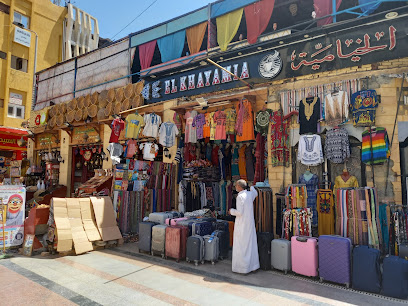
Unfinished Obelisk
Explore the Unfinished Obelisk in Aswan: Witness ancient Egyptian engineering and stonemasonry techniques firsthand.
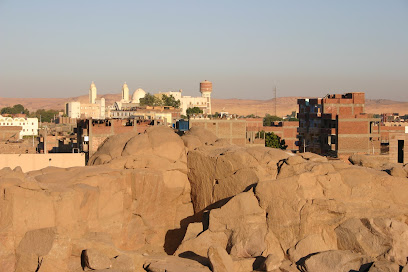
Aswan Museum
Explore Nubian history and ancient artifacts at the Aswan Museum on Elephantine Island. Discover relics from pre-dynastic times to the Roman era.
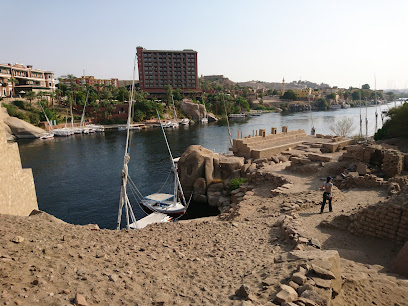
Dome of Abu Al-Hawa
Discover ancient tombs and panoramic views at Aswan's Dome of Abu Al-Hawa, a historic landmark on the Nile's west bank.
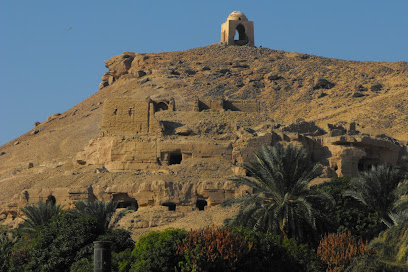
Isis Temple
Explore the relocated Temple of Isis on Agilkia Island, a stunning monument to ancient Egyptian mythology and architectural skill.
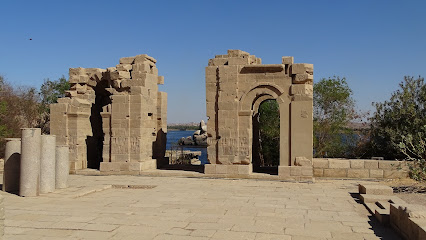
هاوس
Explore Haws in Aswan, a vibrant tourist attraction rich in culture, history, and authentic Egyptian experiences waiting to be discovered.

Cemetery Fatimid 2
Explore ancient Islamic tombs in Aswan's Fatimid Cemetery, a unique architectural and historical site dating back centuries.

Church Greek parking
Your starting point for exploring Aswan's ancient temples, vibrant markets, and the stunning Nile Corniche. Open daily from 7 AM to 5 PM.
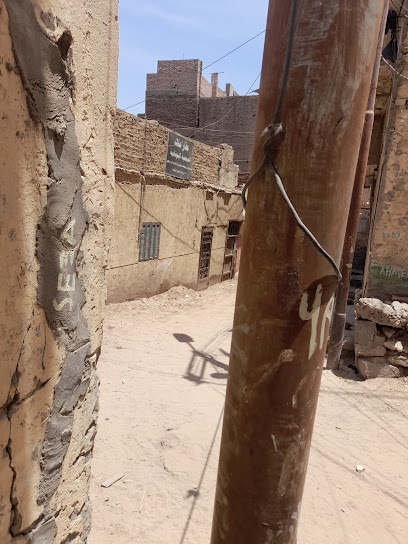
Fisherman Island
Discover Fisherman Island in Aswan: a serene escape blending natural beauty with authentic Egyptian culture and tranquil Nile River views.

temple Khnum 2
Discover the ancient Temple of Khnum on Elephantine Island, a testament to Aswan's rich history and the god of the Nile's floods.

Unmissable attractions to see
Unfinished Obelisk
Explore the Unfinished Obelisk in Aswan, an extraordinary archaeological site that reveals the mysteries of ancient Egyptian stone-carving techniques.
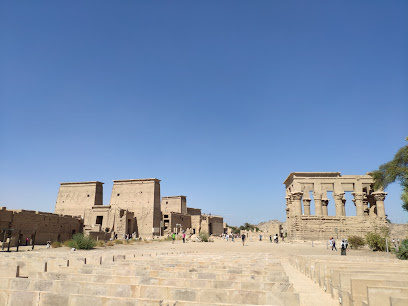
Dome of Abu Al-Hawa
Discover the breathtaking views and rich heritage at the Dome of Abu Al-Hawa, a must-visit tourist attraction in Aswan, Egypt.
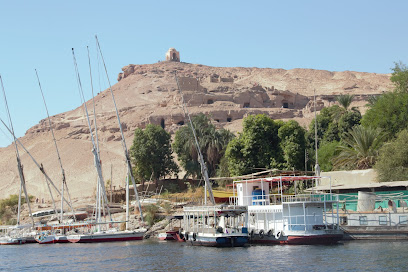
هاوس
Explore the House in Aswan, a serene tourist attraction that showcases the rich culture and history of Egypt amid stunning natural beauty.

Fisherman Island
Discover the picturesque Fisherman Island in Aswan, where nature meets culture along the banks of the enchanting Nile River.

Stela of King Harsiotef
Unravel the ancient stories inscribed on the Stela of King Harsiotef in Aswan, where history and artistry come alive amidst the Nile's beauty.
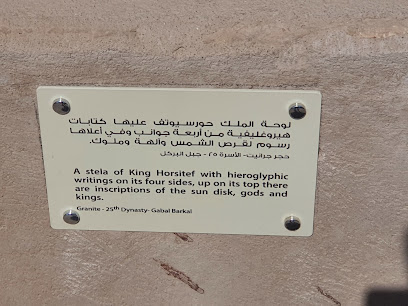
Aswan river nile
Explore the enchanting Aswan River, where history, culture, and stunning landscapes converge along the iconic Nile in Egypt.
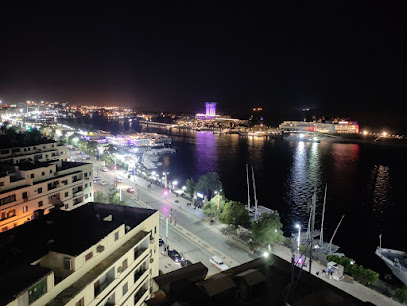
Church Greek parking
Discover the perfect blend of convenience and culture at Church Greek Parking, your gateway to exploring the wonders of Aswan.
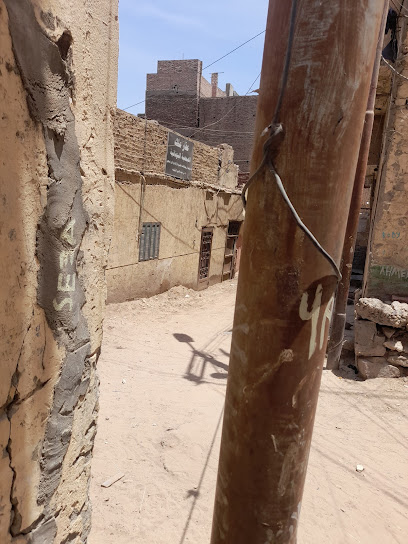
Essential places to dine
Al Masry
Discover the authentic tastes of Egypt at Al Masry in Aswan—where every meal is a celebration of flavor.
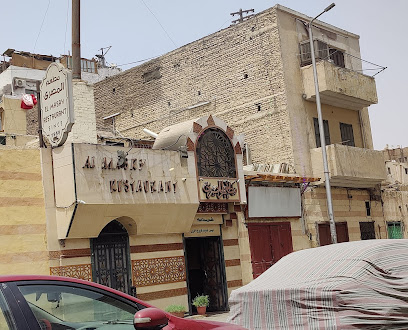
Bob Marley Moonlight terrace restaurant cafe
Experience authentic barbecue flavors at Bob Marley Moonlight Terrace Restaurant Cafe in Aswan – where every meal feels like a celebration.
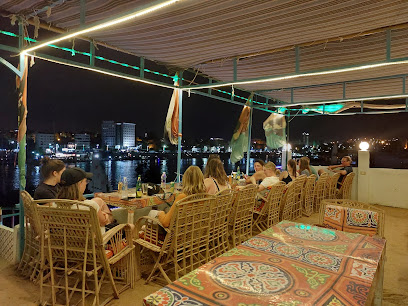
جمبريكا - Gambareca
Experience fresh seafood like never before at Gambareca in Aswan - where every dish tells a story of local flavor and tradition.
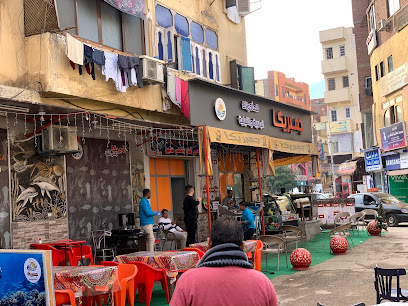
Nubian Dreams Restaurant & Cafe
Experience authentic Egyptian flavors at Nubian Dreams Restaurant & Cafe in Aswan, where every meal tells a story of tradition and culture.
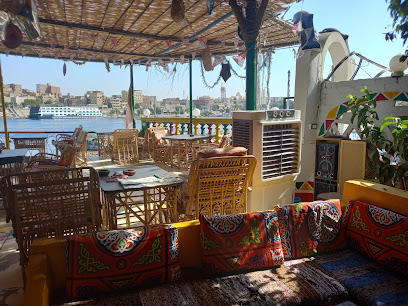
قصر الشام
Experience authentic Syrian cuisine at قصر الشام in Aswan - where every dish tells a story.
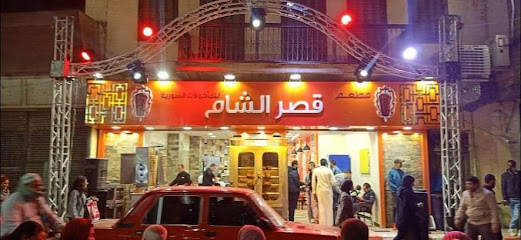
Kana Kato Restaurant & cafe
Discover an exquisite buffet experience at Kana Kato Restaurant & Cafe in Aswan - where local flavors meet international cuisine.
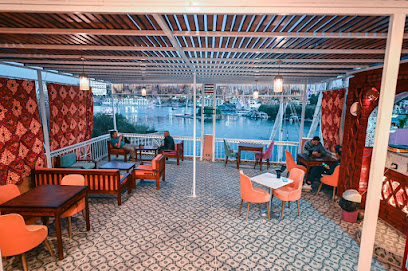
Salah El Din Restaurant
Experience authentic Japanese cuisine at Salah El Din Restaurant in Aswan; where every dish tells a story amidst stunning Nile views.
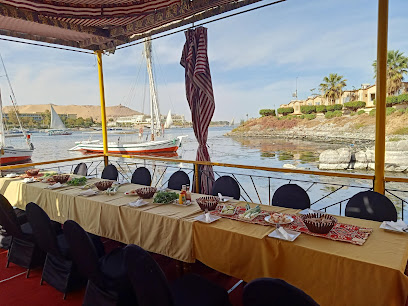
Panorama Restaurant & Bar
Experience exquisite dining with breathtaking views at Panorama Restaurant & Bar on Elephantine Island in Aswan.
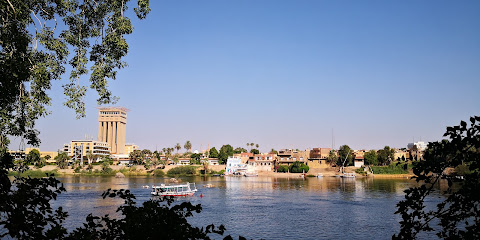
Elmabroka Restaurant And Cafe
Discover fresh seafood delights at Elmabroka Restaurant And Cafe in Aswan, where every meal comes with breathtaking Nile views.
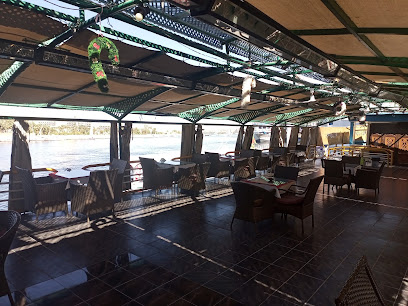
Al El Beit Restaurant
Discover authentic Japanese izakaya cuisine at Al El Beit Restaurant in downtown Aswan – where tradition meets taste.

Markets, malls and hidden boutiques
ASWAN plaza hotel and mall
Explore ASWAN Plaza Hotel and Mall: A vibrant shopping destination along the Nile with diverse shops, dining, and entertainment options for every traveler.
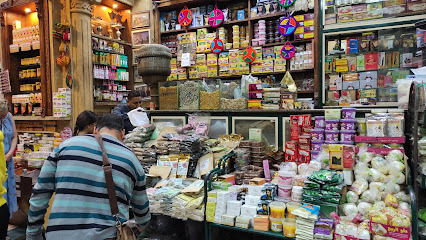
Old Shop Aswan
Explore Old Shop Aswan: A vibrant shopping destination showcasing traditional crafts, exquisite jewelry, and local artistry in the heart of Aswan.
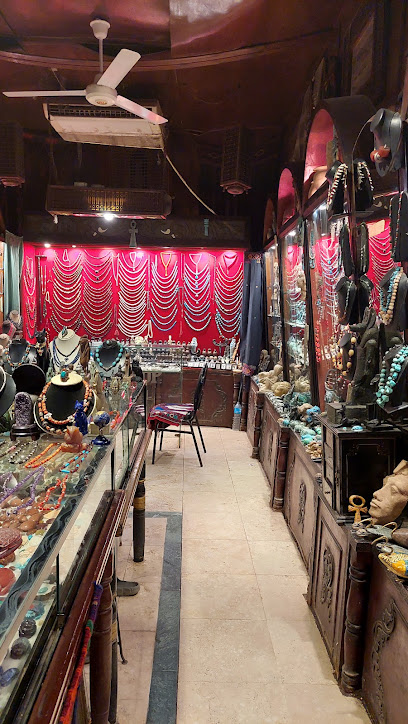
ريزن أسوان- Resin Aswan
Experience shopping like never before at Resin Aswan, where modern retail meets local culture in a vibrant mall atmosphere.
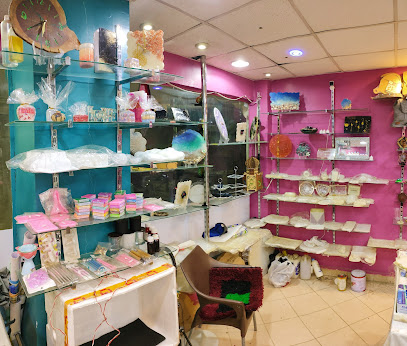
Al.Agamy Bazaar
Explore Al.Agamy Bazaar, a vibrant gift shop in Aswan, where authentic Egyptian crafts and unique souvenirs await.
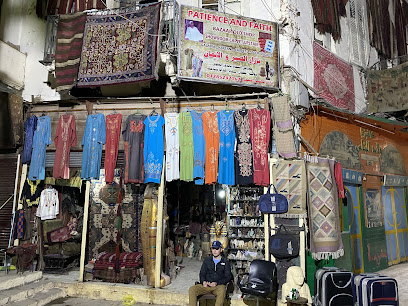
HANAFI BAZAAR (LONELY PLANET)
Explore Hanafi Bazaar in Aswan for unique gifts, antiques, and a taste of Egyptian culture, all set against the beautiful Nile River.
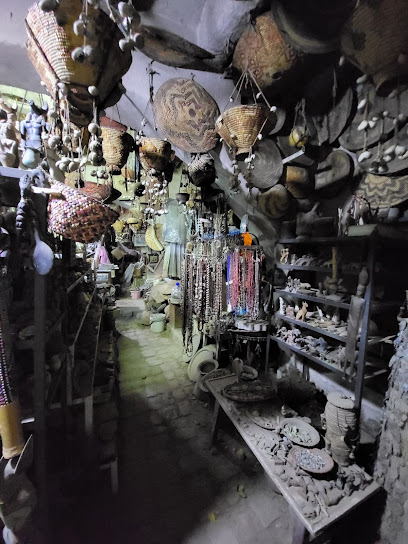
مول سيتي سنتر
استمتع بتجربة تسوق فريدة من نوعها في مول سيتي سنتر بأسوان، مع مجموعة متنوعة من المتاجر والمطاعم لتلبية جميع الأذواق.

bazaar hanafy
Discover authentic Egyptian treasures at Bazaar Hanafy, Aswan's charming gift shop offering unique handicrafts and souvenirs.
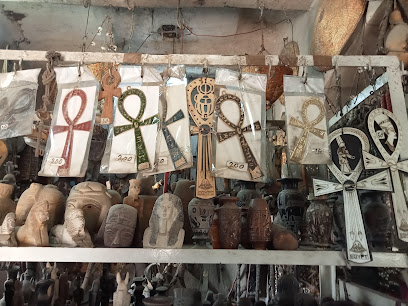
Aswan Collectibles
Explore Aswan Collectibles for unique souvenirs and authentic Egyptian handicrafts, embodying the rich culture and artistry of Egypt.
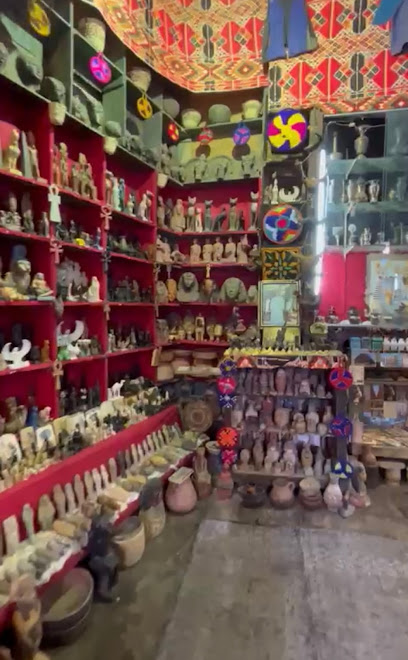
محل ركن الهدايا
Discover exquisite Egyptian handicrafts and unique souvenirs at محل ركن الهدايا in Aswan, where culture and craftsmanship meet.

Bishareen bazaar . Since 1870
Explore Bishareen Bazaar in Aswan for unique gifts and crafts that embody the spirit of Egyptian culture since 1870.

Essential bars & hidden hideouts
مطعم وكافيتيريا ايمى درينكز
Unwind by the Nile at Emy Drinks Café, where every sip is a taste of Aswan's vibrant culture and charm.
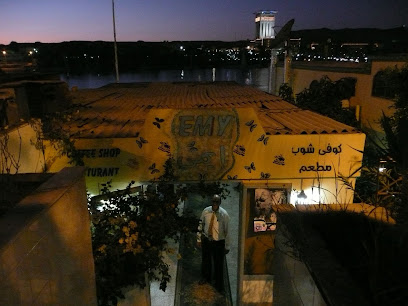
Emy Bar
Experience the vibrant nightlife of Aswan at Emy Bar, a local favorite for refreshing drinks and unforgettable memories.

The Lounge Bar
Experience the charm of The Lounge Bar on Elephantine Island, where exquisite cocktails meet stunning Nile views in a tranquil oasis.
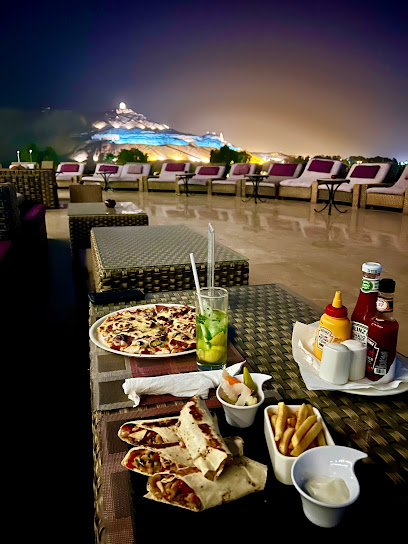
درينكيز
Discover the vibrant nightlife of Aswan at درينكيز, a lively bar offering a unique blend of local and international drinks.

Princess Amira Aswan Hotel
Discover luxury and local culture at Princess Amira Aswan Hotel, your gateway to the historic treasures of Aswan, Egypt.

Al Qahwa
Discover the tranquil beauty of Al Qahwa, a bar and restaurant on Elephantine Island offering exquisite drinks and stunning Nile views.
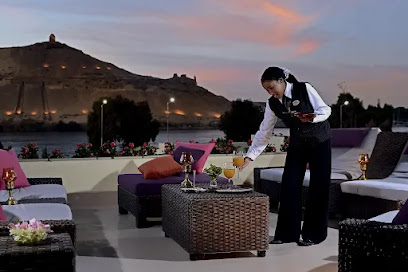
Pool Bar
Experience tranquility at the Pool Bar on Elephantine Island, where refreshing drinks and stunning views create the perfect escape in Aswan.

Panda bar
Discover the local charm of Aswan at Panda Bar, where traditional drinks and a cozy atmosphere await you.
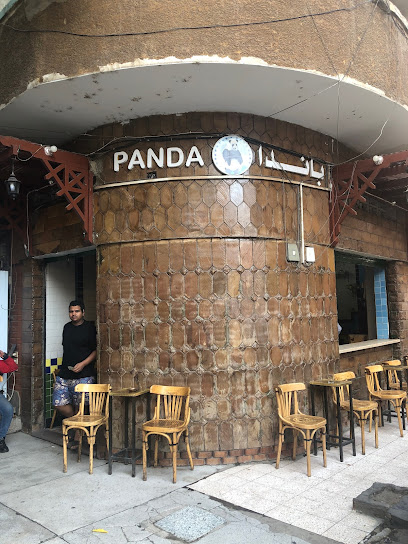
رضا مصطفى أحمد
Discover the lively bar scene of Aswan at رضا مصطفى أحمد, where local culture meets refreshing drinks in a vibrant atmosphere.

Being sport
Discover the lively charm of Being Sport, a bar in Aswan where the drinks flow and the atmosphere is always vibrant.
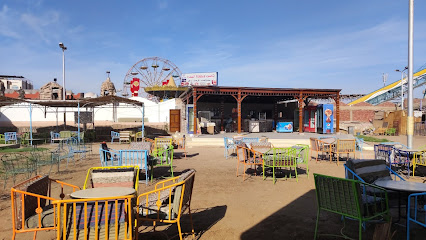
Local Phrases
-
- Helloمرحبا
[marhaba] - Goodbyeوداعا
[wada'an] - Yesنعم
[na'am] - Noلا
[la] - Please/You're welcomeمن فضلك
[min fadlik] - Thank youشكرا
[shukran] - Excuse me/Sorryعذرا
['udhran] - How are you?أزي الحال؟
[ayza el 7al?] - Fine. And you?بخير. وأنت؟
[bekhair. w-ant?] - Do you speak English?هل تتحدث الإنجليزية؟
[hal tatahadath al-inglizia?] - I don't understandأنا لا أفهم
[ana la afham]
- Helloمرحبا
-
- I'd like to see the menu, pleaseأود أن أرى القائمة، من فضلك
[awad an ara el qaima, min fadlik] - I don't eat meatأنا لا آكل اللحم
[ana la akl al lah'm] - Cheers!في صحتك!
[fi sahtak!] - I would like to pay, pleaseأود أن أدفع، من فضلك
[awad an adfa', min fadlik]
- I'd like to see the menu, pleaseأود أن أرى القائمة، من فضلك
-
- Help!النجدة!
[elnajda!] - Go away!اذهب بعيدا!
[adhhab ba'eedan!] - Call the Police!اتصل بالشرطة!
[itssil bilshurta!] - Call a doctor!اتصل بطبيب!
[itssil batabib!] - I'm lostلقد ضللت الطريق
[laqad dalalt at-tariq] - I'm illأنا مريض
[ana mareed]
- Help!النجدة!
-
- I'd like to buy...أود أن أشتري...
[awad an ashtari...] - I'm just lookingأنا فقط أتفرج
[ana faqat atfarrag] - How much is it?بكم؟
[bekam?] - That's too expensiveهذا غالي جدا
[heza ghali jiddan] - Can you lower the price?هل يمكنك تخفيض السعر؟
[hal yumkinuk takhfid al si'r?]
- I'd like to buy...أود أن أشتري...
-
- What time is it?كم الساعة؟
[kam as-sa'ah?] - It's one o'clockالساعة الواحدة
[as-sa'ah al-wahida] - Half past (10)النصف بعد (10)
[an-nisf ba'd (10)] - Morningصباح
[sabah] - Afternoonمساء
[masa'] - Eveningمساء
[masa'] - Yesterdayأمس
[ams] - Todayاليوم
[alyawm] - Tomorrowغدا
[ghadan] - 1واحد
[wahid] - 2اثنان
[ithnan] - 3ثلاثة
[thalatha] - 4أربعة
[arba'a] - 5خمسة
[khamsa] - 6ستة
[sitta] - 7سبعة
[sab'a] - 8ثمانية
[thamania] - 9تسعة
[tasia] - 10عشرة
[ashara]
- What time is it?كم الساعة؟
-
- Where's a/the...?أين ...؟
[ayna ...?] - What's the address?ما هو العنوان؟
[ma huwa al-unwan?] - Can you show me (on the map)?هل يمكنك أن تريني (على الخريطة)؟
[hal yumkinuk an tarini (ala al-kharita)?] - When's the next (bus)?متى الحافلة التالية؟
[mata al-hafila at-taliya?] - A ticket (to ....)تذكرة (إلى ...)
[tazkira (ila ...)]
- Where's a/the...?أين ...؟
History of Aswan City Center
-
Aswan's history as a significant trading hub dates back to ancient Egypt. Located on the banks of the Nile, it served as a gateway for trade between Egypt and Nubia. The city's strategic position made it essential for the transport of goods such as gold, ivory, and spices, contributing to its wealth and prominence in regional trade networks.
-
During the Pharaonic period, Aswan was known as 'Syene' and was crucial for its quarries, particularly for the fine red granite used in monumental architecture. Many famous temples and obelisks were constructed using stones from Aswan, making it an integral part of ancient Egyptian civilization.
-
Following the conquest of Egypt by the Romans in 30 BC, Aswan became an important administrative center. The Romans utilized its strategic location to manage trade routes and military operations. They also constructed several buildings, including temples and forts, which reflected their architectural style and helped consolidate their presence in the region.
-
With the advent of Islam in the 7th century, Aswan transformed into a vital cultural and religious center. The city became a melting pot of various cultures and religions as scholars, traders, and pilgrims traveled through. This period saw the establishment of mosques and schools, contributing to the city's rich Islamic heritage.
-
In the mid-20th century, the construction of the Aswan High Dam (completed in 1970) marked a significant turning point for the region. While it helped to control flooding and generated hydroelectric power, it also led to the displacement of communities and the submersion of historical sites. The dam remains a symbol of modern Egypt's ambitions and a testament to the ongoing balance between development and preservation.
Aswan City Center Essentials
-
Aswan City Center is conveniently located and accessible from various neighborhoods in Aswan. If you're coming from the Aswan International Airport, you can take a taxi or arrange a hotel shuttle service, which takes approximately 20 minutes. From other neighborhoods like Nubian Village, you can use local taxis or ride-sharing services, which can take about 30 minutes. Minibuses also operate between neighborhoods, providing an economical option, though they may take longer due to multiple stops.
-
Aswan City Center is best explored on foot due to its compact size. For longer distances, taxis and tuk-tuks are readily available and are a popular choice among locals and tourists alike. Public buses are also an option, but they may not always run on a fixed schedule. Bicycle rentals are available, allowing travelers to enjoy the scenic views at a leisurely pace. A ride along the Nile Corniche can be particularly enjoyable.
-
Aswan is generally a safe city for tourists, but it is wise to exercise caution. Petty crime, such as pickpocketing, can occur in crowded areas, especially near markets and tourist attractions. Avoid walking alone at night in poorly lit areas and be mindful of your belongings. While there are no specific high-crime areas targeting tourists, it is advisable to stay vigilant in busier locations.
-
In case of an emergency, dial 122 for police assistance or 123 for ambulance services in Egypt. Local hospitals are available, with the Aswan University Hospital being one of the main medical facilities. It is recommended to have travel insurance that covers medical emergencies. For minor health issues, local pharmacies can provide over-the-counter medications and advice.
-
Fashion: Do dress modestly, especially in religious sites. Light, breathable fabrics are ideal for the warm weather. Don't wear revealing clothing, as it may be considered disrespectful. Religion: Do respect local customs, such as removing shoes when entering mosques. Don't engage in public displays of affection. Public Transport: Do be polite and offer your seat to the elderly or pregnant women. Don't eat or drink on public transport. Greetings: Do greet with a smile and a handshake. A polite nod or bow can also be appreciated. Eating & Drinking: Do try local dishes and accept food offerings. Don't refuse hospitality, as it is often seen as impolite.
-
To experience Aswan City Center like a local, visit the bustling Souq (market) where you can find spices, handicrafts, and traditional Egyptian foods. Engage with local vendors, who are often eager to share stories about their products. If you're interested in Nubian culture, take a short boat ride to visit nearby Nubian villages. Additionally, don't miss the chance to enjoy a felucca ride on the Nile at sunset for a picturesque view of the city.
Nearby Cities to Aswan City Center
-
Things To Do in Luxor
-
Things To Do in Marsa Alam
-
Things To Do in Sohag
-
Things To Do in Hurghada
-
Things To Do in El Gouna
-
Things To Do in Asyut
-
Things To Do in Sharm El Sheikh
-
Things To Do in Minya
-
Things To Do in Dahab
-
Things To Do in Yanbu
-
Things To Do in Al Ula
-
Things To Do in Beni Suef
-
Things To Do in Tabuk
-
Things To Do in Aqaba
-
Things To Do in Eilat













